What is Lovecraftian? A Deep Dive into the Man, His Writing and His Legacy...
Post by Christian @ 04:15pm 28/02/23 | Comments
We take a deep look at who H.P. Lovecraft was and what it means to be 'Lovecraftian' in a pop culture world constantly trying to sell a vision and define its experiences...
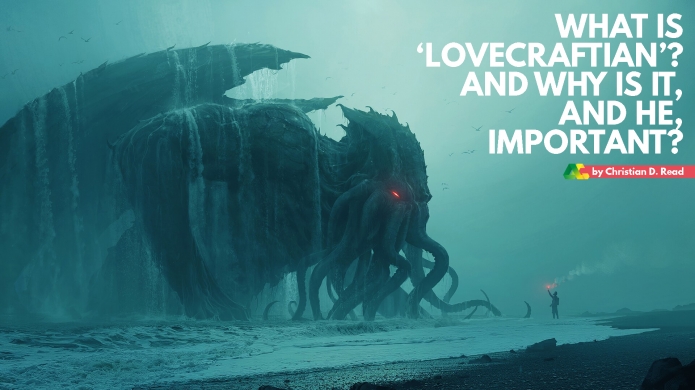
H.P. Lovecraft, then. Alright, here we go. Lovecraft is just one of those artists who everyone seems to have an opinion on, but hardly anyone reads. But you should and here’s why.
Even if you’ve never read him, there’s a very good chance you know who H.P. Lovecraft was. The horror writer who first invented tentacles or something. And more importantly, you probably have an idea in your head about who he is -- some kind of ferocious naziman who would growl and run away from black and Asian people before writing a story that ends with ‘Oh no! It was from Singapore!’. Or perhaps all you really know is references to things as “Lovecraftian” -- there’s a lot of those and these days the word means little more than ‘has a weird tentacle monster in it’, but it's much, much more than that.

Related: The Top 10 Best Lovecraftian Games
We live in a fallen world where snap judgements and moral certainty are the order of the day. But Lovecraft is a vastly important writer and, actually, a very, very good one. (Yes, also pretty racist.)
Let’s, as the kids say, unpack H.P Lovecraft. And let’s talk about why this important writer and king of boomer energy is still absolutely worth your time to investigate and make your own mind up on.
The Cave
Born in 1890, Lovecraft’s early life seems to have almost destined him for horror. His father married an heiress to some fat cash. Then, when Lovecraft was five, daddy went mad. He probably had syphilis, an STD that eats up your brain, which killed him in a madhouse in 98. Then his family became destitute and Lovecraft suffered from what today we’d call anxiety and depression. He locked himself in a library and he read… everything.
He became a keen amateur science writer, then poet, but his endless recurring nightmares demanded he write fiction. He did, and almost immediately the bad racism that dogs his reputation is apparent.
Let’s get the racism bit over and done with, then.
Yes: H.P. Lovecraft was a racist. But we need to put that into historical context. His attitudes about shutting up the country from immigration, his hatred and fear of all people of colour… these were not actually extreme at all for an American white man. This was an era where American senators refused to make lynching black men a federal crime and half a million black people fled the South from fear for their lives and 40000 klan marched in front of the White House and race hate murders were common. Lovecraft writing poems about how scared he was of black people hardly seems to compare to tarring and feathering. Or you know, castrations, child murder and so on.
"He found people of other races genuinely terrifying. He felt they linked humanity to bestial eras of our biological and cultural development...”
Lovecraft’s racism was… odd. No, he didn’t like Africans and wrote often of how ugly and ungainly he found them. He didn’t like Asians much either. But also, he didn’t like poor whites and called them trash. He didn’t like the Irish. Typical stuff. He didn’t seem to have much use for women, either. Obviously.
But Lovecraft wasn’t just a boring 1920s racist -- he found people of other races genuinely terrifying. He felt they linked humanity to bestial eras of our biological and cultural development. Which obviously does not read well to modern audiences but it certainly created a basis for some of the most memorable short stories ever written in horror fiction. The most important and lasting of these have become known as the ‘Cthulhu Mythos’ stories. And the basics of ‘cosmic horror.’ There’s more to him than what is often discussed.

Cosmic horror is complex to nail down and define exactly. But Lovecraft gave as good a definition as any in his most famous story ‘Call of Cthulhu.’
‘The most merciful thing in the world, I think, is the inability of the human mind to correlate all its contents. We live on a placid island of ignorance in the midst of black seas of infinity, and it was not meant that we should voyage far. The sciences, each straining in its own direction, have hitherto harmed us little; but some day the piecing together of dissociated knowledge will open up such terrifying vistas of reality, and of our frightful position therein, that we shall either go mad from the revelation or flee from the deadly light into the peace and safety of a new dark age.’
The universe is an inherently hostile place to humanity. There are… things… out there, in space. In time. Hidden truths to what walked the earth before us. Horrors and wonders we cannot understand. Truth so abhorrent and wild that no human mind can stand them. Especially put in the context of Lovecraft’s time, when science was discovering incredible things like quantum mechanics, advances in astronomy, brutal psychological experiments like Little Albert, this is a radical new take on horror.
Not only are humans not special, not only is religion a crutch, but the true religion is to subjugate ourselves to these horrific beings. We are nothing, and the best we can do is remain nothing. A nihilistic and cheerless take on humanity. And a message that still holds weight and emotional power 100 years on.
The Writer in and out of Time
Now, there’s some actual debate if Lovecraft meant to create a coherent body of work. Gods and the Old Ones seem to be slightly different story to story. Sometimes Cthulhu seems Godzilla sized, then Lovecraft notes he might have ridden around on a T-Rex. Such ambiguities are part of why Lovecraft has remained read -- you must bring your own reading to the table.
But let’s have a look at some of his best known stories.
- Dagon (1919): The first ‘Cthulhu Mythos’ story, in that Dagon would turn up again as an ocean god linked to the famous Deep One monsters. A German submariner tells of a story with a strange island and the horror upon it.
Polaris (1918): A man dreams every night of a city at war. He becomes obsessed with the idea the stars hate him and that his real life is an endless dream he cannot escape.
The Statement of Randolph Carter (1920): The first evolved Mythos story. A book filled with unholy words and names, many of which would become touchstones going forward. Two friends explore an ancient place and something hideous, unseen, claims one.
Nyarlathotep (1920): Lovecraft published his poem about the ancient man god, Nyarlathtop who once ruled Ancient Egypt. Traditional political conservatism comes out here, with humanity depicted as having morally fallen. Also, the spiritual ambiguity of the Great Old Ones is first suggested, with Nyarlathotep both the soul and messenger of the gods.
From Beyond (1920): Perhaps not a full Mythos story, but certainly a cosmic horror tale, in this one a mad scientist has developed a machine to look into the dimensions very close to this one. No one is keen on what he discovers, all around us, all the time.
- Facts Concerning the Late Arthur Jermyn and His Family (1920): Perhaps the first really racist story as we’d think of it. An explorer discovers his ancestors were apes. An obvious discussion of Darwinism but also the first overt message that your ancestry, if not lilly white, is debased.
The Music of Erich Zann (1921): A man listens to a mad violinist in his apartment block playing insane music. Turns out, Zann has an audience of horrors he must keep at bay with his fiddling. An early and strong example of humans being helpless before the true reality of the world.
Herbert West - Reanimator (1922): Perhaps best remembered for inspiring a camp 80s horror classic, this story also sees a little discussed aspect of Lovecraft’s writing, the melding of science-fiction and horror. Herbert West, scientist, learns to resurrect the dead. Three guesses how that goes.
The Hound (1924): OK, we’re really seeing this Mythos thing come together as this is where the 200 kilogram gorilla of books of black magic, the Necronomicon, makes its debut. A bunch of oddly literate grave robbers find the book and awaken something very bad indeed.
The Horror At Red Hook (1925): This is perhaps the most overtly racist of all his stories. A cop investigating what seems like a group of devil worshipping foreign types. Some of the descriptions of the mainly black cast are hard to swallow but honestly, it’s kind of funny how shrieking sensitive Lovecraft was.
Call of Cthulhu (1928): The big wet boy arrives. A scholar pieces together a historical conspiracy that goes back to prehistoric days and finds an account of a man who met Cthulhu face to face. This is a remarkable story and worth it alone for the descriptions of R’lyeh, tentacle-face’s prison home. Absolute cracker. Start reading Lovecraft here.
- The Case of Charles Dexter Ward (1927): A body-jumping story before Freaky Friday even. The Mythos elements provide a grounding for the supernatural shenanigans here. We also get one of Lovecraft’s few women characters -- who has the soul of an old male wizard, natch.
The Colour Out Of Space (1927): In some ways, Lovecraft’s purest expression of his vision. A meteorite landed on some distant farmland and on it was an extraterrestrial hitchhiker. The alien monster here is a colour. Not a weird coloured Star Trek energy thing, not a tentacle beast. A colour. Pure atmosphere here. This one goes particularly hard.
The Dunwich Horror (1928): An odd one, this. In some ways, it's a cracker where supernatural detectives confront the legacy of an ancient god who longs to enter the world once more. But it's far more conventional than Lovecraft’s other stories with a good guy win.
At The Mountains of Madness (1931): Lovecraft’s longest work. In some ways, the culmination of his vision. Scientists go to Antarctica and discover a prehuman city, and the terrible hubris of the Elders who lived on earth hundreds of million years before us. Some think this story recasts the Mythos being as nothing more than advanced aliens and demystifies any supernatural elements. Does it? Decide for yourself, but the Shoggoths, his best monster, are in this one after years of teasing at them.
The Shadow Over Innsmouth (1931): Returning to the themes of miscegenation but as a far more mature writer. Shadow follows a man who returns to the distant town he had connections to, only to discover the terrible religion they practise, the awful Faustian pact they made (shagging fish men) and the narrator’s own vile history. One of the best. The last paragraph, oh my.
The Shadow Out Of Time (1936): A man wakes up realising he’s lost years of his life to amnesia. All his mates hate him and his missus has shot through. He slowly pieces together what he did in his missing years, only to learn that he was possessed by a time travelling, astrally-projecting alien. When he discovers why the alien was jumping through time, he learns that even creatures that can move in four dimensions have things to be afraid of.
- The Necronomicon: The most evil book of supernatural bastardry ever written that’s basically entered pop culture as THE book of supernatural evil. There’s a few other supernatural and occult texts mentioned but the big N is the one that counts. Typically, the narrators either learn something terrible from the Necronomicon, which kicks things off, or consult the book to confirm their suspicions.
- Narrators: Uniformly neurotic white men, often of learning and wisdom, or from the arts, Lovecraft’s characters are typically loners and obsessives, who are aware their curiosity will lead to their own death. One turns into an immortal fish man, one sets himself on fire, one is drinking himself to death and one is dragged off to his death and the hands of gribblies, writing to the end.
- The Great Old Ones: Sometimes depicted as the truth behind all mortal gods, sometimes as titanic aliens of supreme technological might, sometimes neither. There’s really only one story in which a Great Old One appears directly, but they’re always being referred to, prayed over, blamed for things and generally being the biggest boogiemen in fiction.
- Atmosphere: If splatterpunk gore is what you crave, move on. Nor are their tense chases or anything of the type. Lovecraft is all atmosphere, a collection of maddening words, complex emotions and a feeling of impending and nightmarish doom.
- History: Lovecraft loved his home state of New England and often his stories, especially ‘Dexter Ward’, spend some time discussing famous houses and locations. Lovecraft’s love of microhistory contrasts against the Deep Time horrors he’s really here to talk about.
- Words: Lovecraft had a hell of a vocabulary, the obscure and complicated words Lovecraft used in his stories, things like squamous and antediluvian, weren’t there just to show off. These words weren’t anymore well known in his time, he wanted to demonstrate that everything in his stories was alien, unknowable and weird.
The Lovecraft Circle
Characterisation?
You might have noticed no one said anything about characterisation. No one did because Lovecraft straight up didn’t really care about human psychology aside from curiosity, abhorrence and terror. Stories go by where human interaction is minimal, to say it kindly. There’s very little dialogue and nothing you’d call banter. If Marvel quips is what you crave you won’t find it here.
While he was knocking out his stories, Lovecraft was an inveterate letter writer and literally thousands of his letters remain. He wrote to other horror writers like the largely forgotten and underrated Henry Kuttner. He and fellow racist and mamma’s boy, Robert E. Howard wrote often. Howard, of course, is known for his famous creation, Sailor Steve. Oh, and that Conan bloke. C.L. Moore, one of the most important women writing in the fields of SF, horror and fantasy and to the only man who might be considered Lovecraft’s superior in imaginative powers, Clark Ashton Smith.
You might have noticed no one said anything about characterisation. No one did because Lovecraft straight up didn’t really care about human psychology aside from curiosity, abhorrence and terror. Stories go by where human interaction is minimal, to say it kindly. There’s very little dialogue and nothing you’d call banter. If Marvel quips is what you crave you won’t find it here.
Because Lovecraft was, personally at least, well known as being an eccentric figure (when HPL took a fan to dinner, he bought him a famous Bostonian clam dish, wrapping a scarf around his face to block the smell, he so hated seafood) he was also very warm and giving to his fellow artists.
So many of those writers started to slip in what I suppose today we’d call Easter Eggs to their stories. Someone might mention one of Lovecraft’s Old Ones, or look up something in the Necronomicon, or discuss some other recurring motif of Lovecraft’s. By the 40s, pastiches (homages or rip offs depending on your generosity) were almost a subgenre of their own.
This sort of consciousness of other writer’s work is called intertextuality. At its most artless and dreary, it’s ‘oh I got that reference’ stuff and at the best, a clever understanding of how we actually read and watch. This is also, perhaps, the reason why there’s such an intense wish to understand the Mythos itself as a unified whole, but such a wish is almost pointless. Lovecraft would have found the notion of ‘canon’ laughable -- we cannot know the truth of the universe, not even the glimpses we see in fiction.
Is Lovecraft Still Important
A common conversation you’ll see on the internet is ‘should I read Lovecraft?’ and the answer of course is: yes.
Lovecraft is an important modernist writer if nothing else. And he’s found fans and admirers everywhere. He’s a common subject of French academic writing, and his works have inspired not only legions of flaccid imitation but considerable big heavy names like Joyce Carol Oates and wife-shooting drug fancier William Burroughs have written Mythos stories. He’s not getting that sort of attention if he’s just a hack.
But the subtext to the question is often ‘am I allowed to read Lovecraft?’ In our current era, taste in media is so often seen as a moral act, which is absurd. Yes, if you read Lovecraft you’re being exposed to some racist ideologies but often so twisted and high-pitched it's hard to take seriously as anything other than a nervous man having a panic attack over a ridiculous hypothetical.
Lovecraft isn’t exactly writing ‘Look at this, a chinaman, he sucks, here’s a list of slurs for him we can say together, fellow whites’. Make no mistake, the subtext is absolutely there, but it is (almost entirely) subtext. But you’re a grown up and the world wasn’t always the utopia free of spite it is today, and at least Lovecraft gave us sick scenes like when that bloke stabs Cthulhu in the head with a boat.
More interestingly, people of colour and women often produce some of those spectacular Mythos fiction as well. W.H. Pugmire’s folk horror British take on cosmic horror is remarkable, and Pugmire was super duper gay. Transwoman Caitlin Kiernan’s very obviously a fan. Victor LaValle, the black crime writer’s amazing Ballad of Black Tom directly interrogates Lovecraftian racism, while being a pitch black noir.
More importantly, Lovecraft’s take on a world that’s only barely holding on against a tidal wave of the horrific, hostile Old Ones and their servants… it's massively influential. As we hunt monsters on the streets of Yarnham, we have Lovecraft to thank. When we’re in the base alone and the computer logs are telling me to cheese it before the necromorphs come, we have Lovecraft to thank. When our army of adventurers are marching into my ancestor’s ancient house, we’ve Lovecraft to thank.
Yes, Lovecraft has a tarnished legacy it’s pointless to deny. But also, literature and art is not for dummies who can’t give such work context. So read the man.
You’ll gain a much stronger understanding of modern fantasy and horror writing, although, as with all things Lovecraftian, the knowledge comes with a terrible price.
About the Author
Christian D. Read is a writer and game developer living in Melbourne, Victoria. His new gamebook "Starcore: Heroic Fantasy and Cosmic Horror" will be released in April. He last penned a deep-dive on the subgenre of the Weird Western for us last year. You can read that here.
Latest Comments


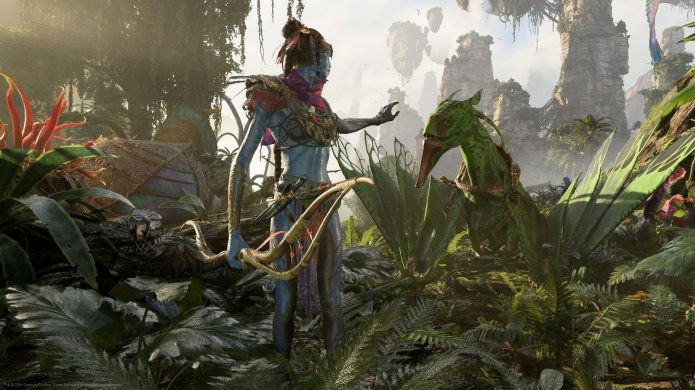

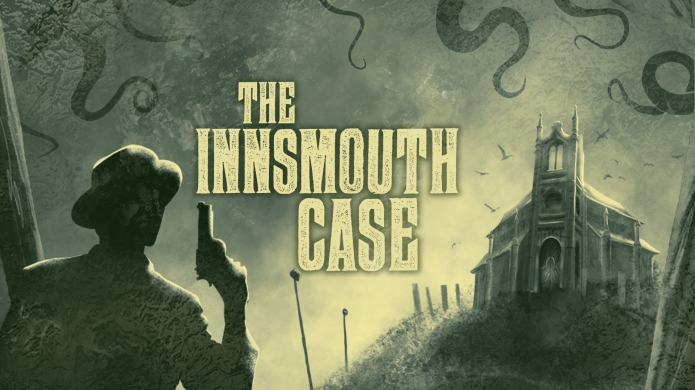
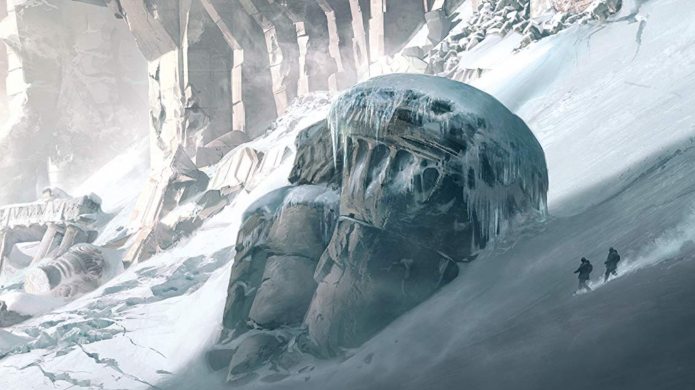
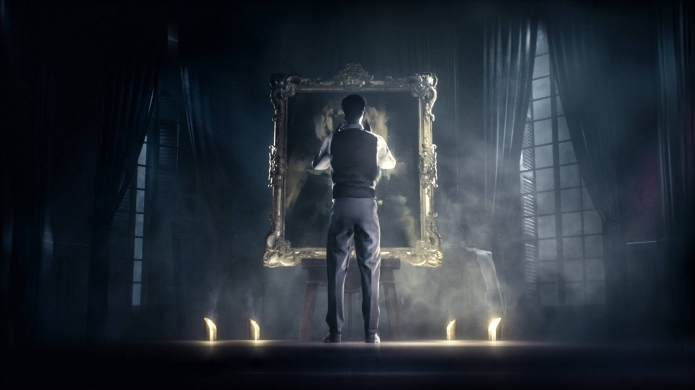
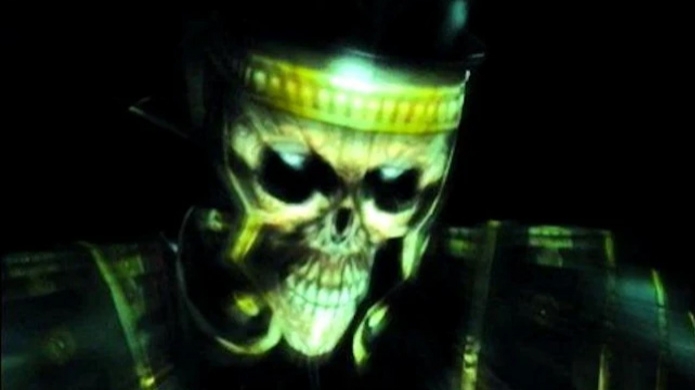
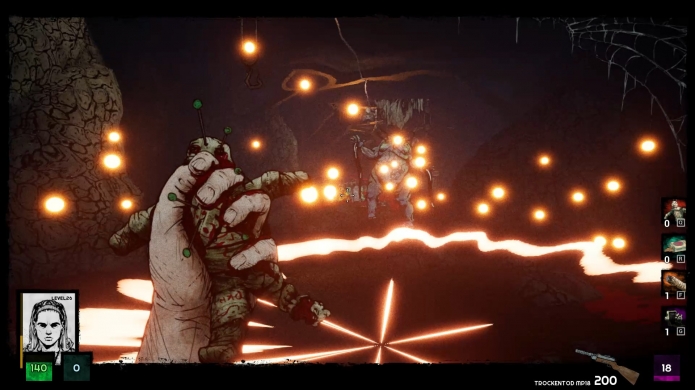
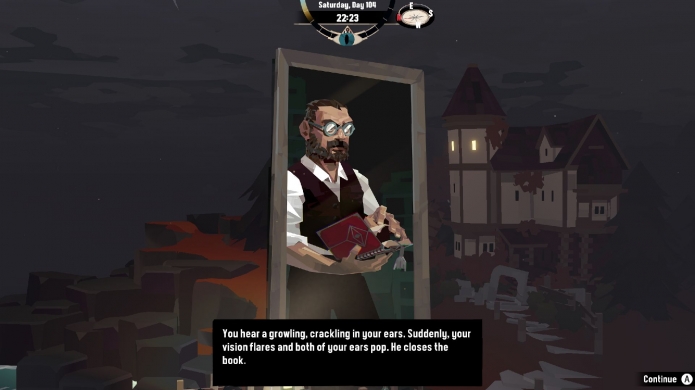



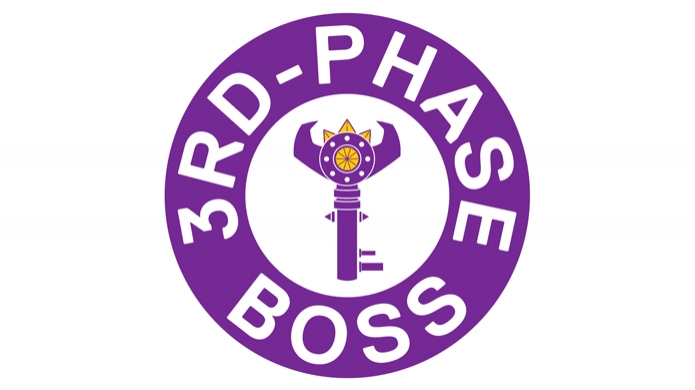

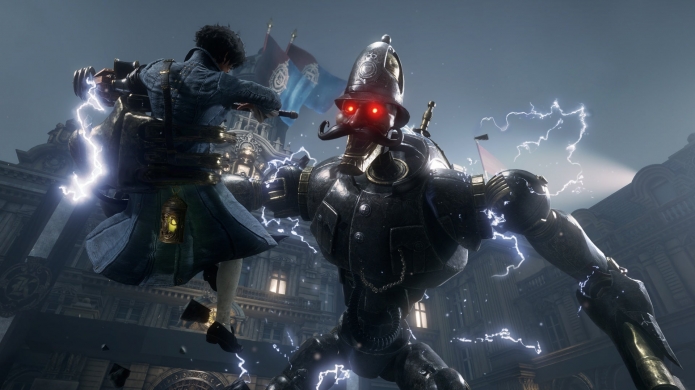









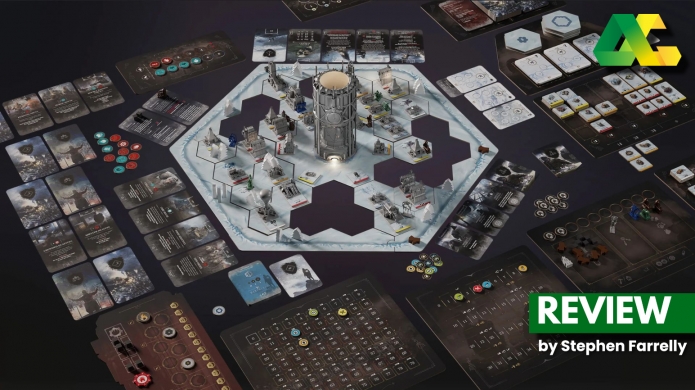

Posted 03:06pm 01/3/23